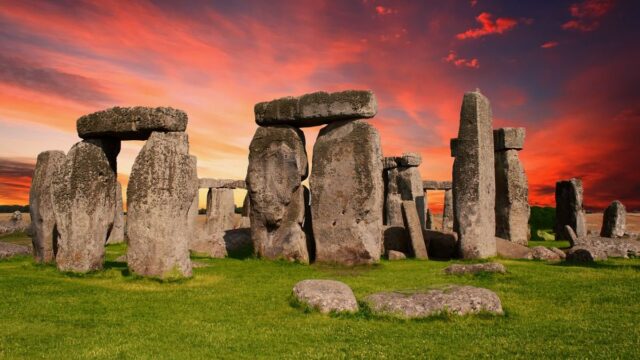Researchers were amazed to discover that the megalith traveled more than 450 miles (724 kilometers) to its resting place in Wiltshire, England. What does this revelation mean for our understanding of Neolithic peoples?
A new study has shown that the Altar Stone, weighing six tons and located in the heart of Stonehengecame from the extreme north of Scotland and not from southwest Wales, as previously believed.
The research, led by Welsh PhD student Anthony Clarke, used mineral crystals and revealed that the megalith located in the center of the ancient monument was transported by prehistoric people from, at least, the current Invernessand possibly even to the Orkney Islands.
According to results published in the scientific journal ‘Nature’, the stone had a unique signature that coincided with 95% certainty with rocks from the northeast of Scotland. “I don’t think the people back home will forgive me,” Clarke joked to BBC News. “It will be a big loss for Wales!”
In addition to stating that Stonehenge was built with stones from all parts of Britain (other stones came from Wales and England), the study shows that the construction of Stonehenge was an effort of collaboration between prehistoric peoples much larger than experts believed until now.
With important implications for our understanding of the period, the discovery points to a Neolithic Britain that was a much more connected and advanced society from what was understood until now.
“It completely rewrites the relationships between Neolithic populations throughout the British Isles,” Rob Ixer, honorary researcher at University College London and one of the experts who participated in the study, told The Guardian. “The science is beautiful and extraordinaryand it will be the subject of debate for decades… It leaves us speechless.”
Additional sources • BBC, Guardian







